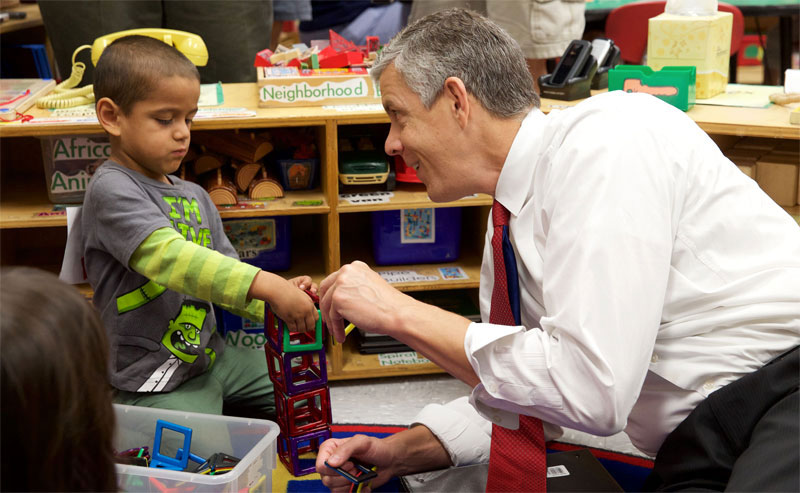<< Learning Center
Media Accessibility Information, Guidelines and Research
Inclusion Beyond Academics
By Jade Cox
In March 2011, U.S. Department of Education Secretary Arne Duncan and Assistant for Special Education and Rehabilitative Services Alexa Posny brought attention to the need to create inclusive learning experiences for students with disabilities. In addition to highlighting schools that have successful inclusion programs, they renewed a dedication to ensure students with disabilities have access to accommodations and support systems. However, Secretary Duncan took the benefits of inclusion beyond academics, as he emphasized the value of creating opportunities for students with disabilities to develop social skills that will enable them to confidently and successfully participate in society.

Inclusion enables these students with disabilities to participate and fully integrate into the school community, instead of experiencing isolation and segregation. They engage in real life on a micro level. Their experiences and interactions offer enhanced academic opportunities, as well as support for development of skills needed to initiate, create, and maintain social relationships with others. In an inclusive classroom, these students are able to see and experience appropriate social interaction that they might not encounter in a more restrictive classroom. Their mastery of social interaction and understanding of social norms will serve as great assets for future success.
Students without disabilities also undergo real life on a micro level, as the inclusive interaction teaches acceptance and appreciation of individuals who are "different." Such early and frequent experiences can create a level of comfort and willingness to fully accept. In addition to creating respect, inclusive classrooms offer opportunities to build role model and leadership skills. Typically, students without disabilities can become models for norms in social interaction, and they can positively reinforce the necessity for desirable behavior and actions.
DCMP has resources that take your classroom beyond academics and help teach social skills. We also provide you Listening is Learning and Read Captions Across America learning modules to teach you how use of inclusive media (described and captioned) helps your students without disabilities.
But don't take our word for it. We invite you to get busy previewing, selecting, and using DCMP accessible media, and watch all your students flourish!
About the Author
Jade Cox serves as the Educational Specialist at DCMP and has eight years of experience as an educator. Please feel free to contact her at jcox@dcmp.org regarding titles in our catalog or the media selection process.
Tags:
Please take a moment to rate this Learning Center resource by answering three short questions.
